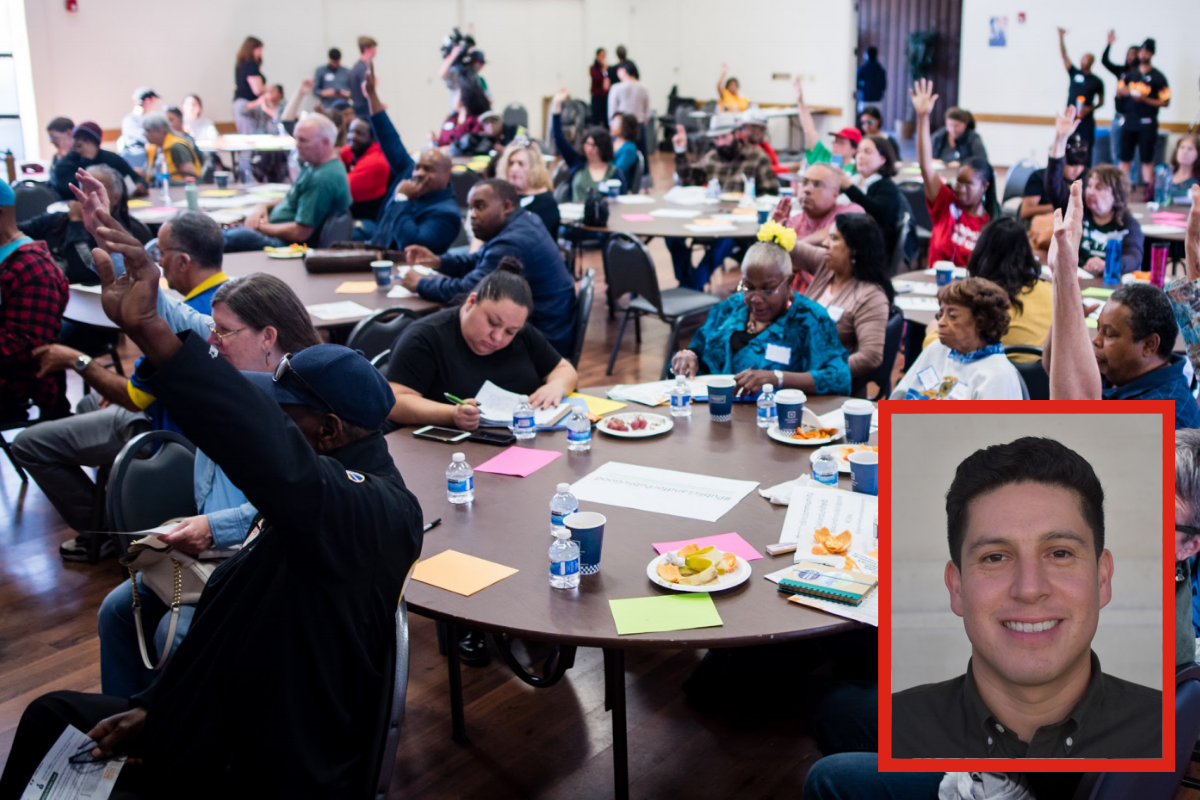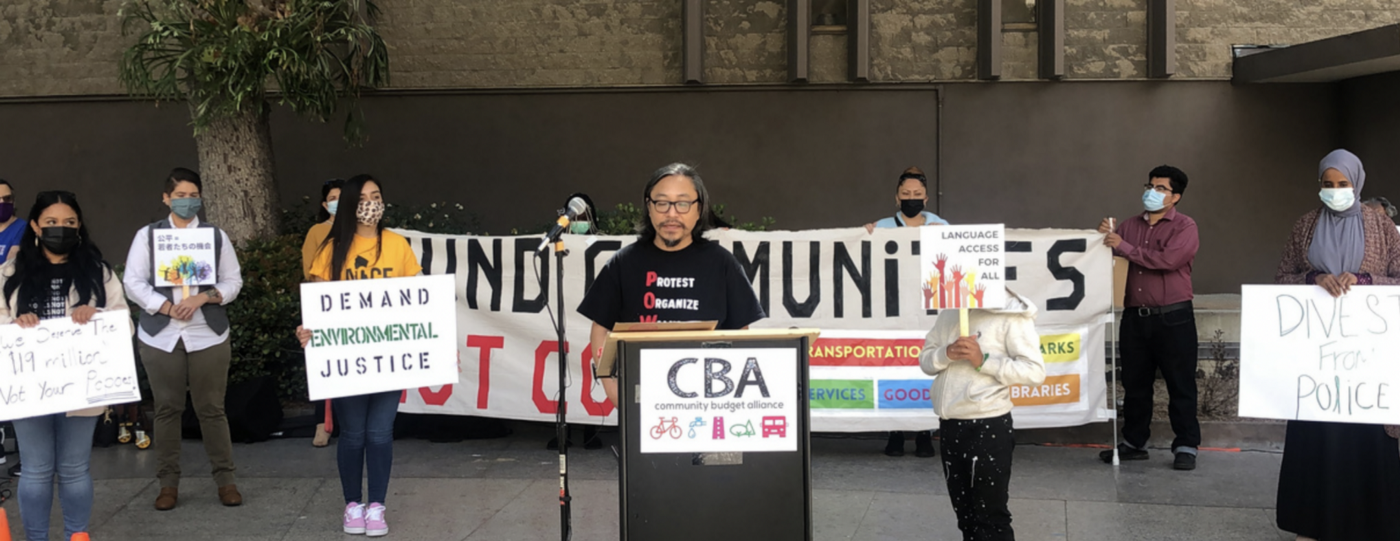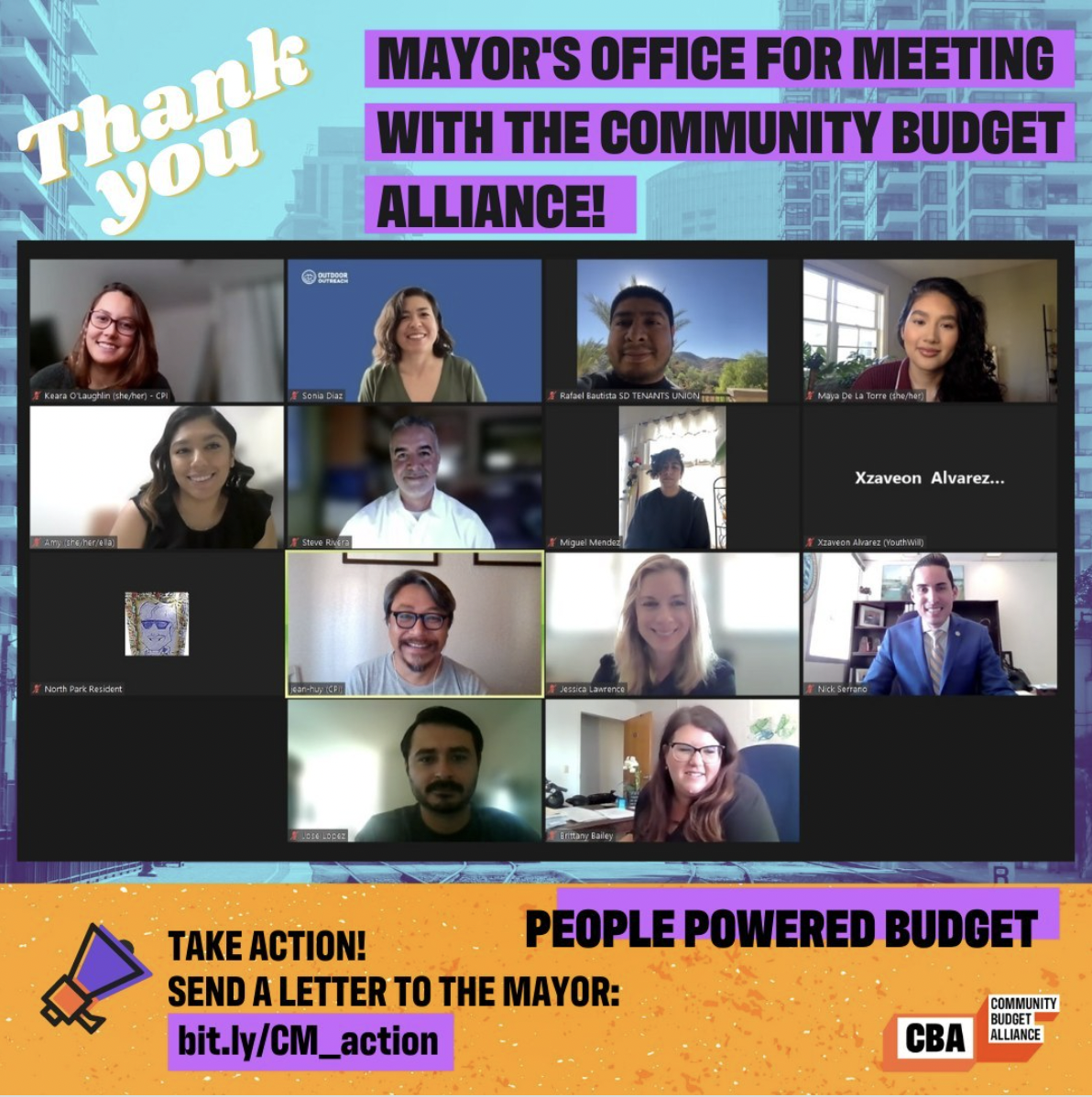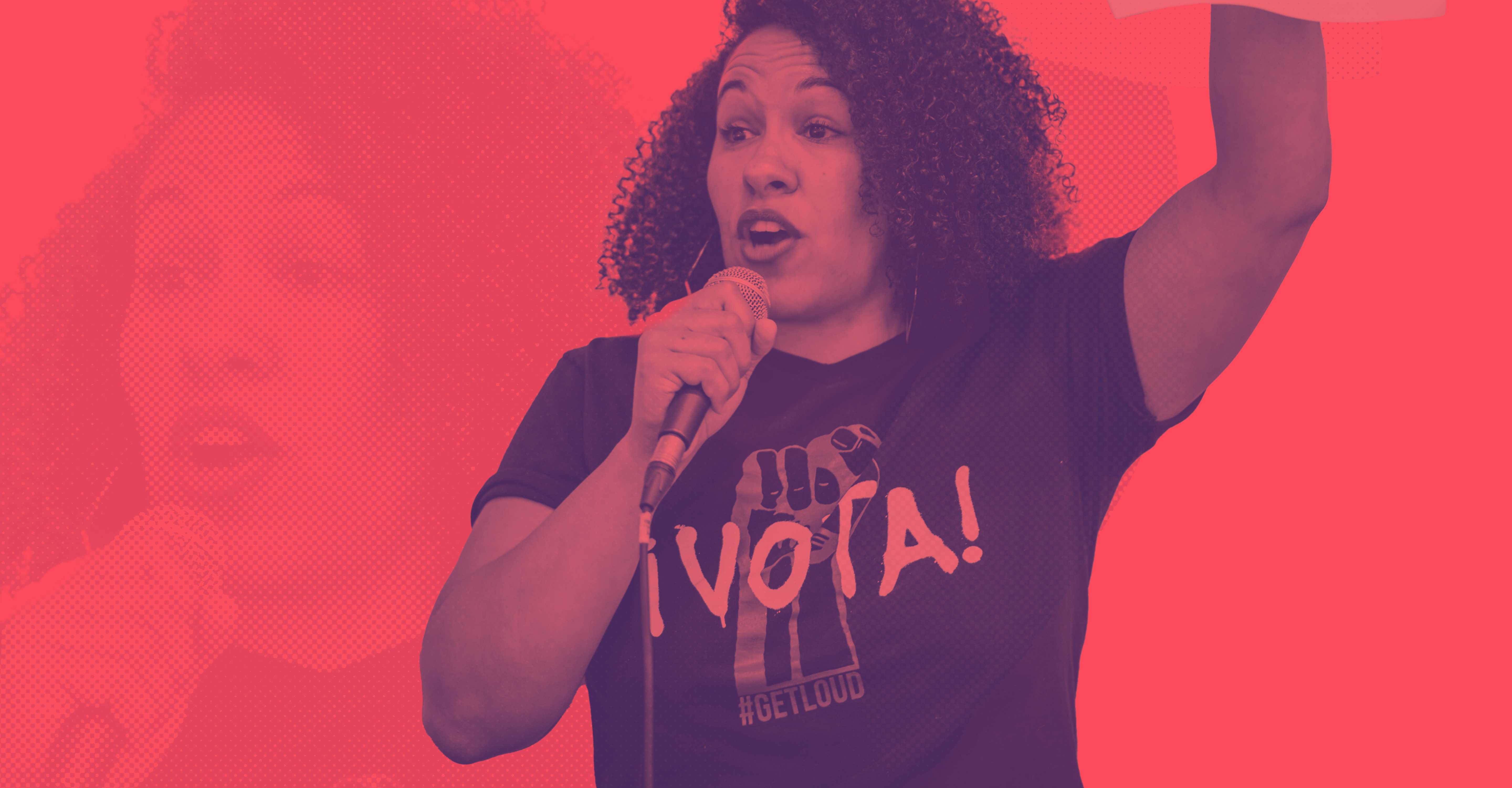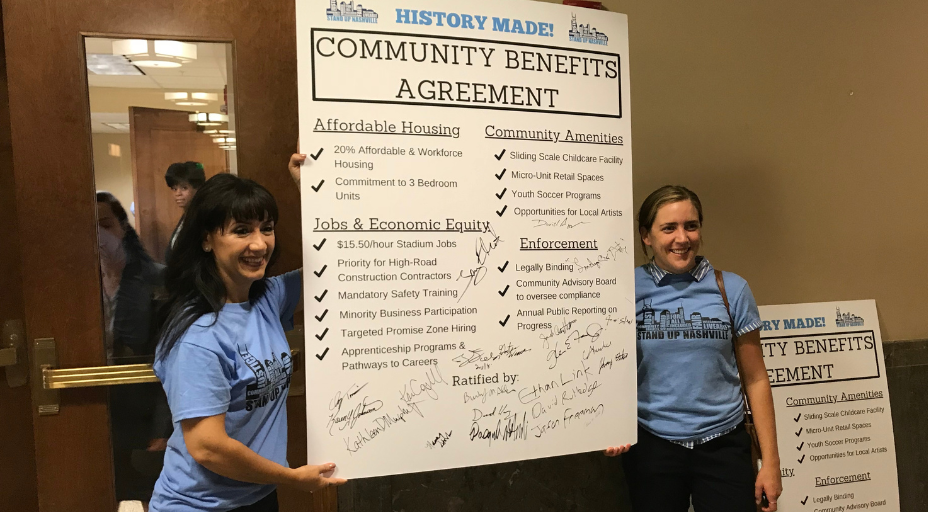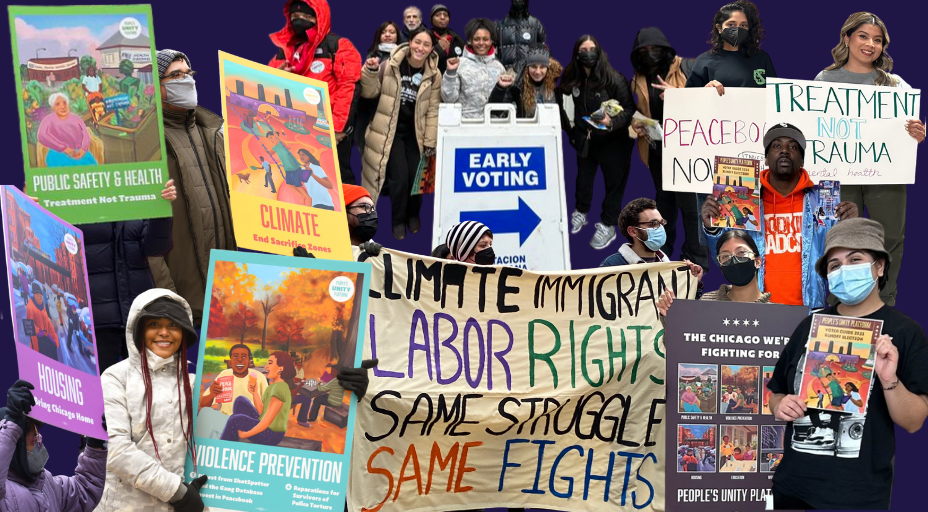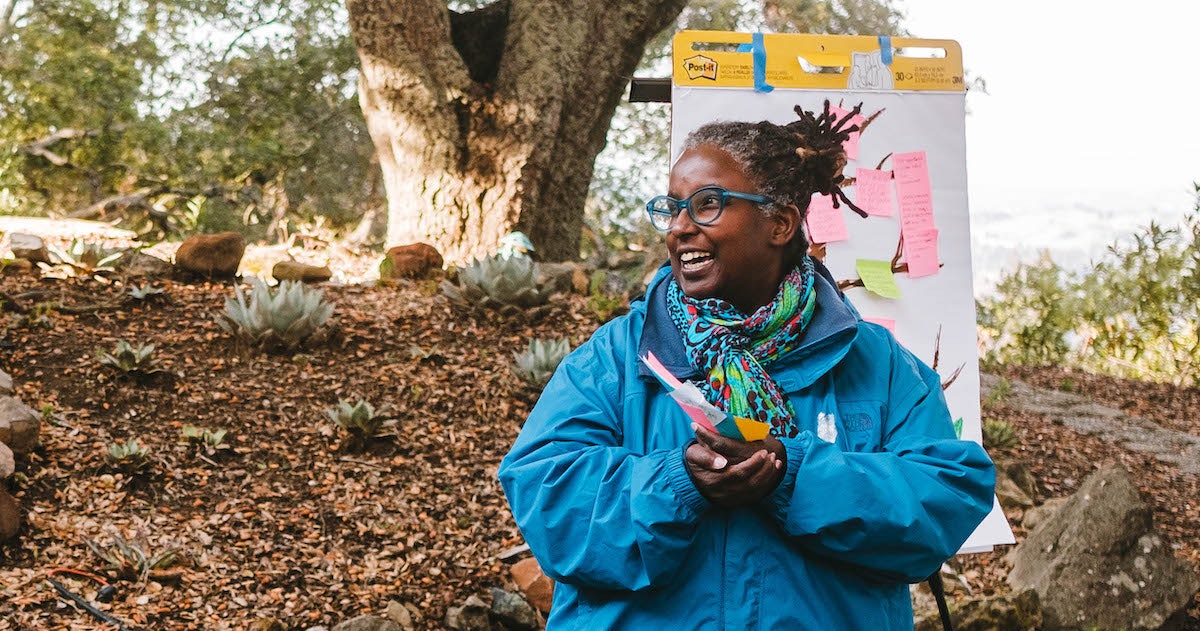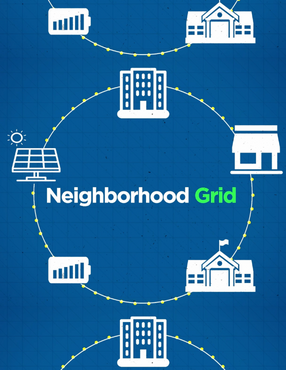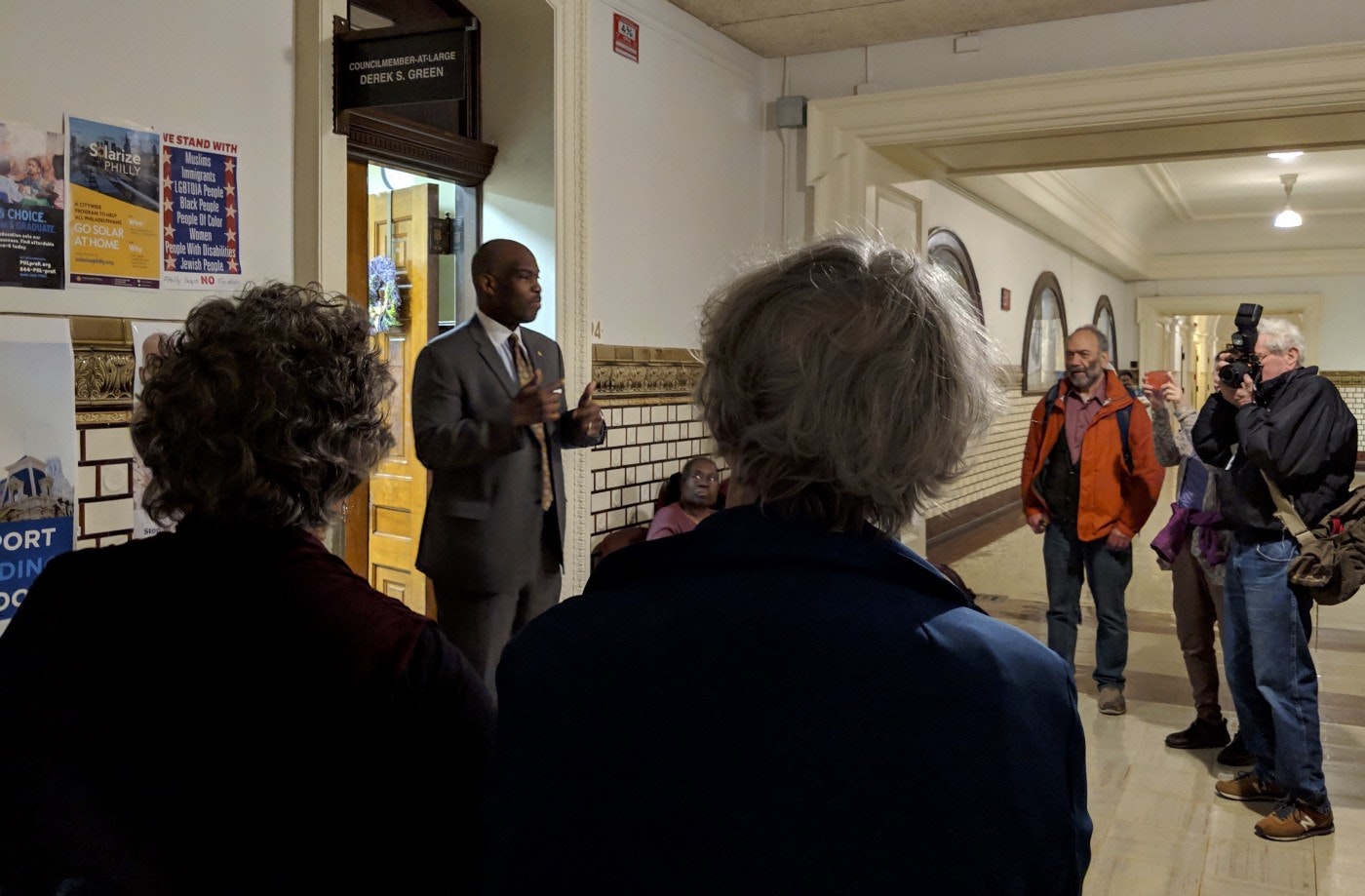By Jeff Barrera, Communications Director, and Edgar Beltrán, Senior Campaign Lead
Jeff: You’ve been leading a project over the past year to build people-powered local budgets. Why are local budgets so important?
Edgar: People often talk about budgets as moral documents, expressions of what we value as a society. That’s absolutely true, but we should also think of them as blueprints for our future — what we invest in today will shape how our communities look tomorrow.
Local budgets have a long history of being racist and exclusionary. Too often they’re shaped by a small group of powerful elites, who siphon off public resources into private hands at the expense of Black, Brown, and working class neighborhoods.
That’s why we’re so excited to be flipping that dynamic on its head, and use budgets as a tool to make governance more democratic and focus our public resources towards addressing the overlapping crises we face right now.
Jeff: Can you talk about the work PowerSwitch Action and our affiliates have been doing so people have a real say in how local public dollars are spent?
Edgar: Pretty early in the pandemic, we formed a people-powered budgets learning circle with organizers in cities across the US. It’s been a really useful space to collaborate on strategy, share lessons learned, and build relationships with peers advancing similar campaigns and challenging similar limitations.
This year, there’s been a real focus on directing federal dollars towards long-term community priorities.
For example in San Diego, the Center on Policy Initiatives and its Community Budget Alliance brought residents together to craft a People’s Budget. Their coalition won funding from the City and County for four parks in under-resourced neighborhoods, new offices focused on workers’ rights and youth services, and a new Independent Commission on Police Practices — to name just a few!
I think that’s a great example for how we leverage this moment to lay more groundwork for the future we truly want.
Right now local governments are receiving historic waves in federal investment, like the American Rescue Plan and infrastructure bill. By bringing communities into the process for how those dollars are spent, we can both achieve more equitable budgets and expand authentic democracy — one of the strategic imperatives of our long-term agenda.
Jeff: You recently moderated a discussion for The Forge with local organizers who have been leading community budgeting campaigns. What were your key takeaways from the panel?
Edgar: Yeah, it was a fantastic panel. I think I have three big takeaways:
First, across very distinct cities we see the same challenges over and over again, particularly around how disempowering the budget process can be. Organizers in Chicago, for example, described how budget priorities are typically set by the Mayor and departmental committees with little public input, and if there is public input it’s often ignored.
Budget processes are often designed to be exclusionary — which is why it’s so important to organize for both better outcomes and a better process.
Second, across cities communities run up against the same set of corporations and industries that seek to profit by extracting our public resources. A prime example is tech corporations selling surveillance tools like ShotSpotter, an expensive and deeply flawed gunshot detection system that contributes to the over-policing of communities of color. Organizers in Chicago, San Diego, and other cities are organizing to stop public resources from going to ShotSpotter and other harmful tech.
Third, the wins we’re seeing now have been years in the making.It takes time, resources, and focus to campaign for people-powered budgets. You have to forge coalitions across communities that have faced disinvestment, develop technical expertise to dig through dense budget documents, and build relationships with elected officials.
In that vein, we’re gearing up to try experiments over the next few years, going deep to expand our collective imagination about budget possibilities, and shift agenda setting and decision-making power into the hands of local communities. I’m excited to see how this project develops!
Read more about the People-Powered Budgets campaign in this article on The Forge.
